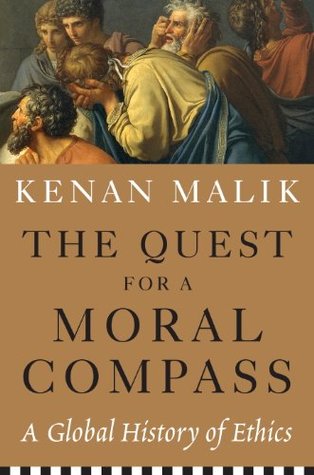More on this book
Community
Kindle Notes & Highlights
by
Kenan Malik
Read between
December 2 - December 11, 2022
Herodotus reminds us how deep are the historical roots of moral relativism. Not until the twentieth century, however, did belief in the relativity of moral norms become socially significant. Rousseau had observed that selfishness only has meaning in a society in which altruism is possible. The same could be said of moral relativism. Only a world that could contemplate the possibility of genuine universalism, and possessed the material resources to implement it, could also genuinely contemplate the possibility of moral relativism.
The key distinction between moral claims and personal preferences is not psychological but social. A social need is not a fact, nor is it a scientifically objective claim. But it is undeniably more than merely subjective. The challenge is to define what that ‘more’ is.
So begins Alasdair MacIntyre’s brilliant, bleak, frustrating and above all provocative 1981 book After Virtue. A work of unleavened academic philosophy, it became a most unlikely bestseller, and highly influential among historians, theologians and political theorists, not to mention policy makers.
Moral thought has been hollowed out; everyone uses moral terms such as ‘ought’ and ‘should’, but no one truly understands them. We argue endlessly about the justice of wars, the morality of abortion, the nature of freedom, but we do not reach agreement; in fact, we cannot even agree about what would constitute a satisfactory resolution to these disagreements.
The difference, however, between torture and collateral damage in war is the difference between deliberately treating a human being as a piece of meat and unintentionally killing some people. The immorality of torture lies not simply in the pain that a torturer inflicts but in his blindness to the humanity of a human being. Every human being is both an object and a subject, both a biological being and a moral agent. In treating his victim as a slab of meat, the torturer is reducing him to a mere object. In so doing he hollows out the very substance of our moral lives.
Nor does faith in God relieve believers of the necessity to think for themselves about what is right and wrong. In the past, Europeans burnt thousands of witches and enslaved millions of people, claiming that God had sanctified such practices. Today few believe this. It is not that God has changed His mind but that humans have. As societies transform so do moral values; that is the story of this book.
To bring reason to bear upon social relations, to define a rational answer to a moral question, requires social engagement and collective action. It is the breakdown over the past century of such engagement and such action that has proved so devastating for moral thinking.
Frankl’s book is a hymn not to a transcendent deity but to the human spirit. Humans, he suggests, find themselves only through creating meaning in the world. But meaning is not something to be discovered. It is something that humans, and only humans, create. They do so by acting upon the world. ‘Man is ultimately self-determining,’ Frankl wrote. ‘Man does not simply exist but always decides what his existence will be.’
It is in the relationship between ‘man-as-he-happens-to-be’ and ‘man-as-he-could-be’ that we come to discover the why and the how of morality.


